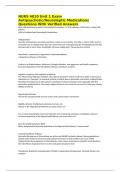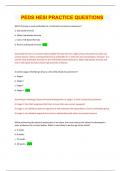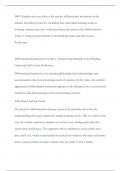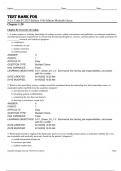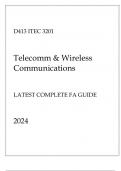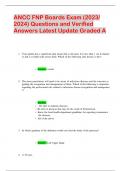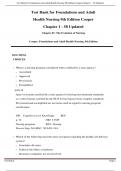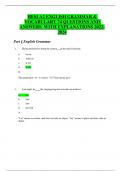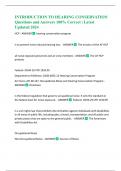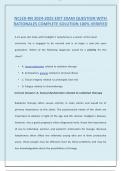Examen
NURS 4010 Unit 1 Exam Antipsychotic/Neuroleptic Medications Questions With Verified Answers
- Cours
- Établissement
NURS 4010 Unit 1 Exam Antipsychotic/Neuroleptic Medications Questions With Verified Answers Bind with dopamine receptors (commonly D2 receptors - in all 4 pathways of the brain, causing side effects) MOA of Antipsychotic/Neuroleptic Medications Antipsychotics Used for schizophrenia, paranoi...
[Montrer plus]
